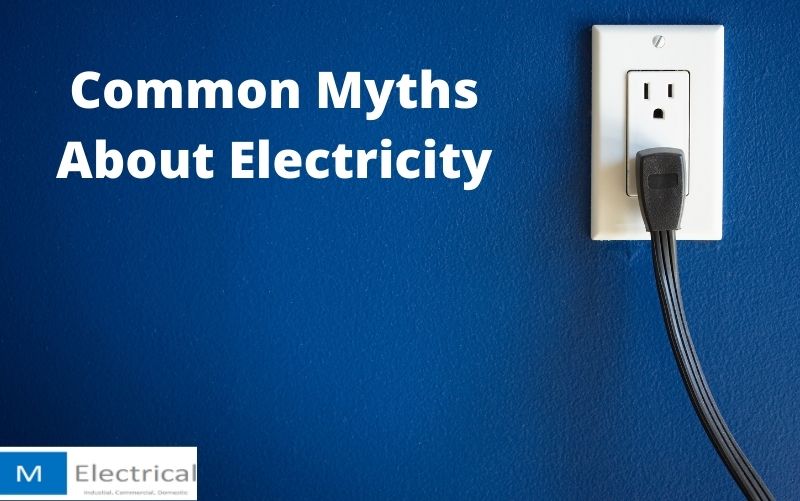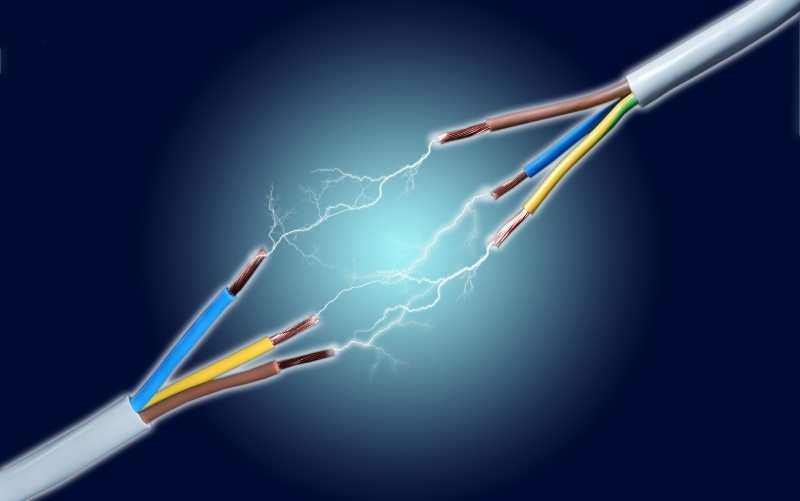“What do you know about electricity?” This is a question we often get from homeowners. It turns out that there are some myths and misconceptions about electricity floating around, so we wanted to debunk them for you. After reading this blog post, you’ll be armed with the information necessary to dispel these myths and feel confident in your knowledge of how electricity works! If you are in dilemma thinking about the myths during a storm or in a natural disaster about what to, please take suggestion from an experienced electrician.
Today we will discuss some common myths about electricity you should know.
Rubber or wood cover appliances are not conductor
Low voltage poses less danger
The power that is used in the house is not very strong
Lights startup penalty
If you are grounded you are safe from electricity
If you turn appliances off, it won’t be using any energy
The electric flow depends on the wire
Generator creates electricity
Myth 1: Rubber or wood cover appliances are not conductor
Truth: It is true that rubber and wood are in fact good insulators of electricity. But to think that these will save you from electric shock or danger is not right. There is a possibility of accident. So, it would be silly to think that. Never try to check the reality, better take help from a local electrical company.
Myth 2: Low voltage poses less danger
Truth: This is also false! Low voltage may seem like it doesn’t pose as much of a threat, but it can still be dangerous. You should always take precautions when working with low voltage electricity.
The low-voltage electrical shocks that can be found in your home are just as dangerous and sometimes even more so than higher voltage charges. These little jolts of electricity could result in major injury or death if precautions aren’t taken when working with them!
Myth 3: The power that is used in the house is not very strong
Truth: The power that comes into your home is actually quite strong to kill someone. It’s important to be cautious when working with the electricity in house. There are many examples we can present here of being killed in houses due to electricity. So, ignoring this fact will be silly.
Myth 4: Lights startup penalty
Truth: This myth is very common in the society. Most of us have this thought that turning on light bulbs will cost some money. So, don’t think about it anymore and just go ahead! Switching on the lights will not result in you spending extra money. The myths are based on older times when electricity was first introduced into homes. There is no such penalty.


Myth 5: If you are grounded, you are safe from electricity
Truth: Being grounded doesn’t mean that you’re protected from electrical currents either! People sometimes think they are safe if they touch the ground with their hand because they feel like they’re touching earth but to be realistic electricity loves to flow to the ground. It is going to hit all of your blood vessels and organs on the journey down.
Myth 6: If you turn appliances off, it won’t be using any energy
Truth: This is one of the biggest misconceptions about electricity. Plugging in your electronics when you’re not using them is called “stand-by” or ghost consumption. In some cases, there are apparatuses that consume practically the same as they do while on standby mode – like cell phone charges (especially if it’s turned off), televisions and microwaves for example!
Myth 7: The electric flow depends on the wire
Truth: Not thin, longer, wider, properties decide how much electricity will flow through the cable. In reality, the size of a cable does not affect how much electricity it can transmit. Instead, what affects transmission level is sourced properties. The quantity of amp that flows inside the cable is always the same.
Myth 8: Generator creates electricity
Truth: When there is a power outage, we like to use generator as an electrical source and it is said by some people that generator is creating electricity.
A generator doesn’t create electricity- it only makes it happen. It helps transforming mechanical energy into electrical energy, causing the electrons of the cables and circuits to flow.
These were some of the most common myths about electricity in our society. We hope that this article has helped to clear up some of the misconceptions and that you are now more knowledgeable about how electricity works!
Some other articles published on this website are
6 Tips To Stay Safe From Electrical Hazards During Storm
